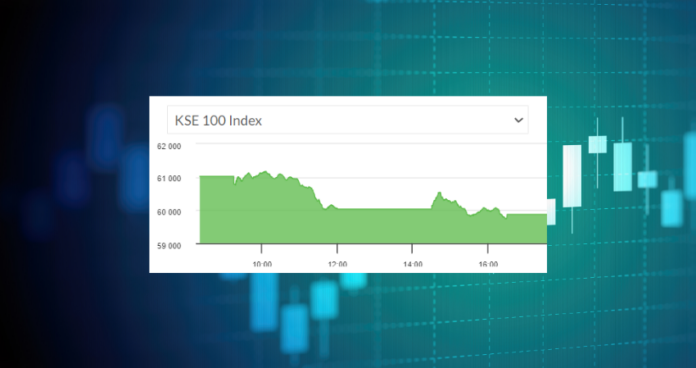Pakistan’s stock market witnessed a turbulent week as the results of the general elections remained inconclusive, sparking protests and allegations of rigging from various political parties.
The brokerage firm AKD Research forecasted that the market would remain volatile in the near term, but would cool off as the political dust settles, especially with the announcement of the upcoming cabinet.
The benchmark index fell below the 60,000 points mark for the first time in 35 trading days, closing at 59,873 points on Friday, down by 37000 points or 4.9% from the previous week.
The market volatility reflected the political instability in the country, as the Pakistan Muslim League-Nawaz (PML-N) struggled to form a coalition government in the lower house, despite emerging as the largest party.
The opposition parties, led by the Pakistan Tehreek-e-Insaf (PTI) and the Pakistan Peoples Party (PPP), rejected the election results and announced plans to stage nationwide demonstrations.
The investors’ sentiment was also dampened by the news of the International Monetary Fund (IMF) rejecting the interim government’s proposed plan to reduce the circular debt and rationalise the industrial tariff.
The IMF urged the government to take more concrete measures to address the fiscal and energy crises, as a precondition for the second review of the Stand-By Arrangement (SBA) and the negotiation of a new Extended Fund Facility (EFF) program.
Another negative factor for the market was the hike in gas prices, effective from February 2024, which increased the feed gas price for fertilizer companies on the Sui network by 175%.
This is expected to have an adverse impact on the profitability and competitiveness of the fertilizer sector, which is already facing challenges due to the gas supply shortage and the imposition of the Gas Infrastructure Development Cess (GIDC).
However, not all was gloomy for the market, as the remittances from overseas Pakistanis remained robust at $2.4 billion in January 2024, showing a 12.5% increase from the same month last year.
On the currency front, the Pakistani rupee maintained its stability against the US dollar, trading at around 279.36 in the interbank market. However, some analysts warned that the rupee could face devaluation pressure in the near future, due to the rising current account deficit and the foreign exchange shortage faced by the independent power producers (IPPs).
The market participation increased by 14.5%, with the average daily traded volume reaching 350 million shares as compared to 306 million shares traded during the previous week.
The major news flows during the week included the 16% month-on-month increase in the large-scale manufacturing (LSM) output, the Rs2.73 and Rs8.73 per liter increase in the petrol and diesel prices respectively, and the 30% rise in the car sales in January.
The sector-wise performance of the market was mixed, with the leasing companies and the synthetic and rayon sectors gaining 5.5% and 2.0% respectively, while the exploration and production (E&P), refinery, and oil marketing company (OMC) sectors losing 6.5%, 6.4%, and 6.2% respectively.
The net selling by the brokers amounted to $5.9 million, while the net buying by the foreigners amounted to $5.2 million.
The top performers among the companies were PGLC, EFUG, GADT, FATIMA, and AGP, while the worst performers were OGDC, NRL, PTC, PPL, and PSO.
AKD said the outlook for the market remains uncertain, as the political situation in the country is still unresolved. However, in the medium term, the market performance would depend on the signals from the new government’s dealings with the IMF for the second SBA review and the next EFF program.
The brokerage house advised the market participants to remain cautious and skew their exposure towards blue-chip stocks.
























Great post I would like to thank you for the efforts you have made in writing this interesting and knowledgeable article.
Great post I would like to thank you for the efforts you have made in writing this interesting and knowledgeable article.
political uncertainty will be overcome only by political means. Nothing will improve on economic or in fact till political uncertainty improves.
You can put men/women in prison. Nothing can be achieved by using force but in fact it will yield negative results. That is what we have seen and happened in last 75 years.
i love reading this article so beautiful!!great job!
i love reading this article so beautiful!!great job!